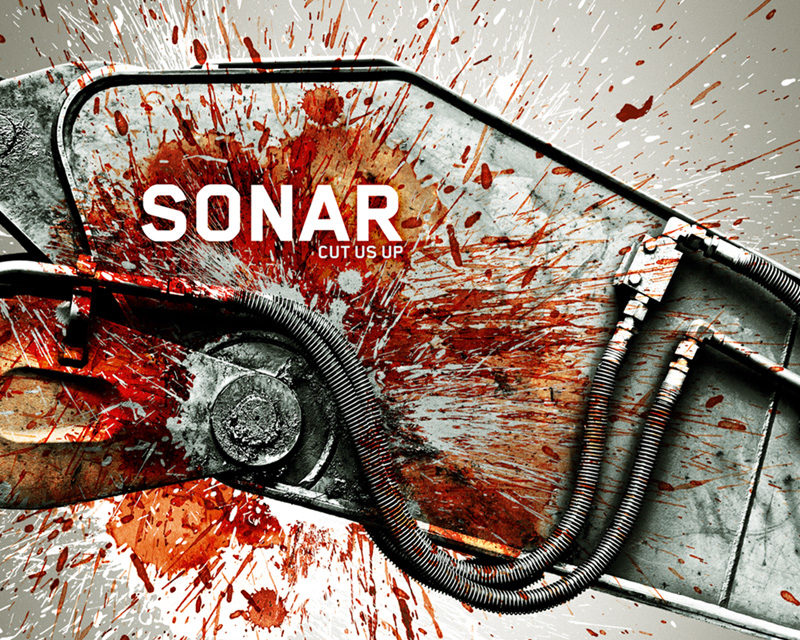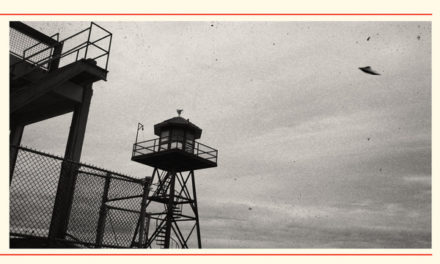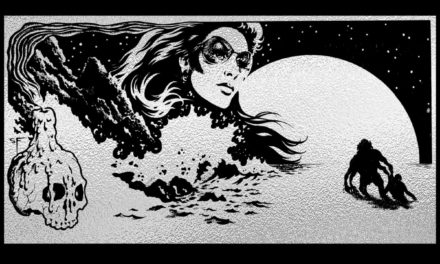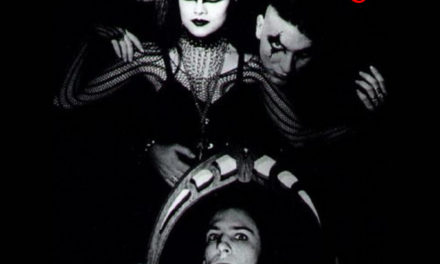Sonar
Cut Us Up
Ant-Zen
Before talking about Sonar, it’s important to recognize Dirk Ivens’ influence on the genesis of rhythmic noise. Well before the first wave of Ant-Zen and Hands artists began to emerge in the mid-90s, Ivens had already spent a solid decade exploring the intersection of beats and distortion, first in The Klinik and then even more overtly in Dive. While the release of Sonar’s self-titled debut (the group being made up at that time of Ivens and Hypnoskull’s Patrick Stevens) in 1996 places it firmly at the vanguard of the so-called power noise movement, the project has always seemed frozen at that moment to me, rarely straying beyond the blueprint of pummeling rhythms and washes of static over the course of the five LPs that followed. Cut Us Up, the first album since 2006’s debut for Ant-Zen Alien Overdrive is equally undiluted, delivering what Sonar has always delivered, for better or worse.
The nature of Sonar’s production has always defied any kind of reconstruction of the project’s ethos. More plainly, even if Ivens and current collaborator Eric Van Wonterghem (who also partners with Dirk in the revived minimal synth project Absolute Body Control) wanted to fit more sounds into their palette, I have no idea where they would find space for them. What they do sonically is a sort of corollary to minimal techno; whereas that genre focuses entirely on drumloops and the bassline with microscopic embellishments to define song structure, Sonar (and to a degree all trad power noise) dispenses with space, its spartan nature a product of the density of the waves of distortion that squeeze all the air out of the mix.
That simultaneously stripped-down and expanded sound is utterly essential to Sonar sounding like, well, Sonar, but it makes for a pretty dry listen, especially in 2012 when we’ve heard what sort of textural things can be done with the rhythmic noise aesthetic in the latter works of contemporaries like Imminent and Synapscape. Ivens and Van Wonterghem are obviously no strangers to melody and atmosphere, so it’s safe to assume that a track like “Closing In”, which plows along through walls of distortion varying only in the occasional stab of additional percussion before coming to an abrupt halt, sounds that basic exclusively because they want it to. Similarly, any given eight bars of “Them and Us” are only distinguishable by the exact timbre of the noise riding the slowed-down train at the heart.
I don’t want to paint those signifiers as flaws necessarily, after all they’re key to Cut Us Up being a Sonar record, and questioning them is akin to asking why there’s so many solos on a thrash record or how come acid is always leaning so heavy on the 303. The slightness of the arrangements is an asset in what Sonar seeks to accomplish, the net effect being that when when details like the vocal cut-ups that pop up in the title track and “Never Too Late” do manifest, they stand out far more than they might otherwise. The biggest departure to be found here is in the metallic yet rubbery loop on “Melted Dream”, its gradual shift in grain remarkably subtle even in the context of its sparse nature.
And that’s kind of it, really. Leaving aside the appeal of hearing this sort of album deafeningly loud (a luxury my apartment building doesn’t afford me), most of the pleasure of Cuts Us Up is in picking up on the particulars as the tracks alternately roll and pummel over you. Measured up against any of the previous Sonar full-lengths it doesn’t distinguish itself, nor does it seek to do so; it’s perfectly content being an exercise in what Sonar has always done and presumably always will do. Your expectations based on that will govern your own enjoyment.






